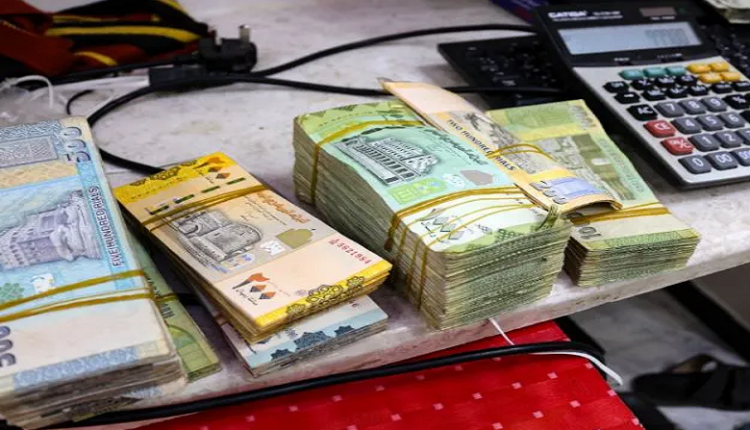Debts of Betrayal: The Coalition of Aggression Drowns the Occupied Provinces in a Swamp of Bankruptcy and Dependency
In yet another scene of dependency and organized plunder, shocking truths continue to unfold day after day about the economic catastrophe created by the Saudi–Emirati occupation and its proxies in the occupied provinces and regions. The external debt of the puppet government has exceeded $7 billion, while the internal debt has surpassed 11 trillion Yemeni rials, as citizens sink into poverty, hunger, and a total lack of services. Meanwhile, the occupied areas drown in unprecedented financial collapse and corruption.
Systematic Financial Looting and the Deliberate Destruction of the National Economy
Economic reports indicate that the puppet government ruling under Saudi–Emirati occupation pursues a reckless financial policy based on excessive foreign borrowing and total subservience to the IMF and World Bank, without any accurate financial database or oversight on the flow of funds, grants, and aid.
According to a report published by Al-Quds Al-Arabi, the external debt of the mercenary government has reached around $7 billion, amid a depleted foreign reserve and the inability to cover imports. At the same time, the so-called “Central Bank in Aden” continues printing illegal currency, further collapsing the exchange rate and causing catastrophic price inflation.
$190 Billion Plundered… Yemen’s Wealth in Foreign Banks
Experts estimate that about $190 billion of Yemeni public wealth has been transferred abroad during the years of aggression—through the organized looting of oil, gas, customs, and tax revenues from ports and border crossings under occupation control.
These funds are being funneled into private accounts in Riyadh, Abu Dhabi, and Cairo, while people in the occupied provinces live below the poverty line, with almost no development or public service projects.
Economists confirm that this is a deliberate process of draining Yemen’s national income sources, designed to keep the country economically dependent and to burden future generations with massive debts that serve the interests of the coalition and its Western patrons.
New Subjugation to the IMF and World Bank
While experts call for halting the policy of foreign borrowing, the traitor government continues to seek more conditional loans imposed by the IMF and the World Bank. These come with harsh measures, including lifting subsidies on basic services, raising taxes and customs, and liberalizing fuel prices in line with the dollar rate in occupied areas.
These conditions are a ready-made recipe for social and economic explosion—further impoverishing the population amid the total absence of any genuine reform plans or national oversight over looted resources.
Citizens: The First Victims of Corruption
Citizens in the areas under occupation are enduring the worst economic and humanitarian disaster since the start of the aggression. The dollar has exceeded 2,200 rials in Aden, prices have multiplied several times, salaries are either stolen or suspended, and basic services—electricity, water, healthcare, and education—have collapsed entirely.
Meanwhile, officials of the mercenary government live in luxury villas in Riyadh, Abu Dhabi, and Cairo, exploiting the people’s suffering while justifying borrowing and looting under the false banner of “reconstruction.”
The Occupation’s Project: Debt, Control, and Impoverishment
What is happening in the occupied provinces is not merely administrative corruption or poor financial management—it is part of the occupation’s project itself, built on dismantling Yemen’s state institutions and turning the country into an open market for Saudi and Emirati companies.
Through foreign loans, donor states and the IMF impose full financial guardianship on the so-called puppet government, controlling spending and project pathways to ensure that Yemen’s wealth flows outward—not toward its people.
In Contrast: The National Leadership Protects the Economy and Builds an Alternative
In contrast, the Government of Change and Reconstruction—and the administrations before it—have, thanks to the 21 September Revolution and its wise leadership, managed to safeguard the national economy and prevent total collapse despite siege and war.
They did so through balanced fiscal policies, promotion of local production, control of public spending, and protection of the national currency from speculative manipulation.
Experts say that comparing the free and occupied regions reveals a stark contrast between a national project striving to build an independent economy, and an occupation-driven project seeking to destroy Yemen and surrender its sovereignty.
Betrayal Sells the Nation for Loans
Today, the government of traitors drowns in a quagmire of debt and financial dependency, as the nation’s resources are looted for the benefit of the aggressor states and their Western maste

